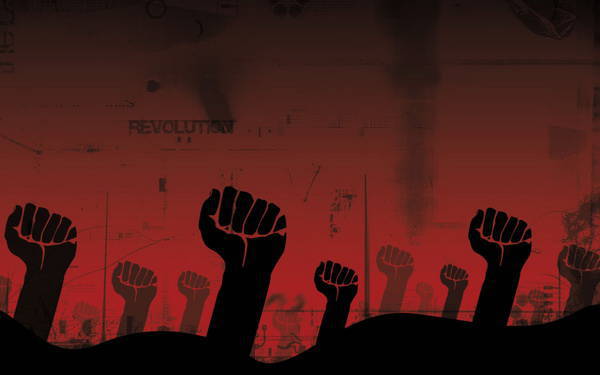International terrorists as creators of the “Greater Middle East”

The so-called “Arab Spring”, which began with massive anti-government speeches in Tunisia and Egypt, is developing in full accordance with the American geopolitical scenarios, the main of which is the redrawing of the geopolitical space, received by the ex-US President George W. Bush, Greater Middle East "... The stakes were made on the creation and artificial maintenance of chronic instability in this part of the world through the systematic fragmentation of a huge geopolitical space va. If the project succeeds, the United States and, possibly, the states of Western Europe that are in solidarity with them will be able to control huge energy resources and their transportation routes, preventing the emergence of new centers of power in the region from Morocco and Algeria in the west to Indonesia and the Philippines in the southeast. Previously, this strategy was successfully worked out in the Balkans, now the architects of the “new world order” are moving to implement it on a wider scale.
The fact that in the "Arab revolution" comes a new stage, shows a new strategy in the field of security, announced in the United States. First, Barack Obama’s adviser on internal security and counter-terrorism issues, John Brennan, announced “deepening cooperation” with the authorities of such states as Yemen, Somalia, Iraq, Pakistan and North African countries. Then Secretary of State Hillary Clinton made it clear which authorities were talking about - in particular, the Muslim Brotherhood, a radical Islamist organization striving for power in Egypt. We welcome the dialogue with those members of the Muslim Brotherhood who wish to talk with us, said Clinton, keeping silent about the terrorist nature of the movement, its close ties with Al Qaeda and the prohibition for diplomats to contact with the official representatives of the "brothers". Now, US officials are allowed to contact directly with representatives of this party, founded in 1928, with the goal of not only building an Islamic state in Egypt, but also reviving a caliphate "from Spain to Indonesia."
A similar policy of supporting forces associated with international terrorism, the West pursues in Libya. There, the Libyan Islamic Fighting Group, established in the 1970s, and in the second half of the 1990s, has become part of Al-Qaida as one of the vehicles for the strategy of the Greater Middle East. Their organizational unity was finalized in 2007. At present, within the framework of the “Libyan Islamic Fighting Group”, its political wing, the “Libyan Islamic Movement for Change,” has emerged, claiming to play a leading role in the camp of oppositionists based in Benghazi and receiving more and more active military-political support from the United States, France and NATO. The interaction of Western structures with terrorist Islamist groups is actively being strengthened in Syria, where these groups have the main role in destabilizing the situation and overthrowing the government of Bashar al-Assad.
Speaking of the link between the interests of the United States, NATO and terrorist forces, it is appropriate to recall the evolution of the attitude of the West towards the Albanian Kosovo Liberation Army (KLA). At the beginning of 1998, when the conflict in Kosovo did not get out of the control of the international community, the then special representative of the US President in the Balkans, Robert Gelbard, stated that the ALC was "a terrorist group, without any questions." However, this did not prevent Washington from starting to cooperate with it in implementing common plans in the Balkans, including to strengthen the positions of the United States and NATO in Kosovo. In the end, didn’t the former British Foreign Secretary and one of Kosovo’s pseudo-independence architects, Robin Cook, claim that the KLA militants "were as cruel as any other insurgents in stories"? Today, the role of such "insurgents" is assigned to the forces entrenched in Benghazi, where terrorist Islamist groups play the main role. Didn't they mean the participants in the recent summit of the African Union, who warned France that the rebel supplied weapon can get into al Qaeda hands?
At one time, Zbigniew Brzezinski proposed to define the region covering North Africa, the Middle East, Transcaucasia, Front and Central Asia, with the term “Eurasian Balkans”. According to him, the “Eurasian Balkans” located on both sides of the inevitably emerging transport network, which should connect the richest regions of Eurasia and the most industrially developed regions of the West to extreme points in the East ... more importantly from a geopolitical point of view. ” Today, the techniques worked out in the Balkans are being applied on a larger scale, over a wider area. A century ago, the most acute Balkan problems - Albanian, Macedonian, Bosnian - were solved by the great powers "as part of their territorial claims in the Balkans and domination in the Mediterranean and the Middle East", but today we see the opposite: the Balkan models became the starting point of reformatting a huge and energy-rich region.
Information